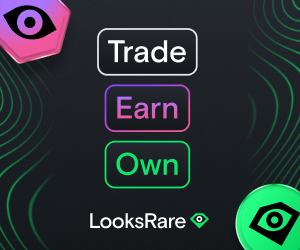What is a decentralized exchange (DEX)?
A decentralized exchange (DEX) is a cryptocurrency trading platform that utilizes blockchain technology to operate without the need for a centralized third-party intermediary. The benefit of using DEXs is that they can provide users with more control over their funds, as well as increased privacy and security.

Are you curious about decentralized exchanges (DEXs) and how they work? With the continued growth of cryptocurrency use, more people are turning to DEXs as an alternative option for trading coins.
What is a decentralized exchange (DEX)?
A decentralized exchange is an online platform that enables users to buy and sell cryptocurrency without the need for a third party or intermediary. This means that transactions are conducted directly between two parties on the blockchain, with no middleman involved. All trading activity occurs on the blockchain itself, rather than on a centralized server. As such, DEXs provide greater user control and privacy over their funds since transactions are conducted on a peer-to-peer basis. (source: wikipedia)
Advantages of a DEX
The major advantage to using a DEX is the increased level of security that comes with it. Since all transactions occur directly between two users, there is no single point of failure that can be exploited by malicious actors. This also means that trading activity remains completely anonymous and private since no personal information is required for transactions to take place. Additionally, since all trading activity is conducted on the blockchain itself, it is nearly impossible for anyone to interfere with or alter a transaction once it has been initiated.
The process for trading on a DEX
In order to trade on a DEX, users must first create an account and deposit funds into their wallet. From there, they can choose which tokens they would like to buy and sell, and set their desired trade parameters. After selecting a trade partner that matches the parameters, users can then initiate a transaction which will be securely recorded on the blockchain. Once confirmed, the tokens will be transferred to the new owner’s wallet.
Centralized exchange (CEX) VS Decentralized exchange (DEX)
When comparing DEXs to centralized exchanges, it is important to understand the differences between the two platforms. Generally speaking, centralized exchanges offer more features and resources for traders, such as order books, margin trading, and advanced charting capabilities. However, these exchanges also come with a greater risk of hacking due to their centralization. On the other hand, DEXs are more secure and offer lower trading fees but are limited in their features.
DEX provides you with the ability to have full ownership of your crypto assets, eliminating the need to rely on any third party for storage. In the event that a CEX encounters issues, such as the case of FTX, you can rest assured that your assets are completely secure when using a DEX.
Popular DEXs in the market
There are several leading DEXs in the market today, including Uniswap, DYDX, Curve, and PancakeSwap. Each of these platforms provides users with different features and advantages that make them ideal for traders looking to buy or sell digital assets. For example, Uniswap is one of the most popular DEXs due to its automated market maker (AMM) system which allows users to quickly swap tokens without having to search for a trading partner. DYDX, on the other hand, focuses more on providing liquidity and ensuring high-speed trades. You can find a list of all the dex on Coinmarketcap.
Security considerations when using a DEX
As with any online platform, it is important that users take precautions to ensure their safety and security when using a DEX. This includes making sure to create strong passwords for all accounts, keeping all accounts secure with two-factor authentication (2FA), and only trading with reputable partners.
Since all transactions that take place on a DEX are publicly visible on the blockchain, users should always be aware of their own security when using one. It is important to remember that anyone with access to your wallet’s private key can view and transfer your tokens, so it is essential to keep that information secure at all times.
Users should always double-check the address of their trading partner before sending any funds, as this can help prevent fraud and scams.
Finally, if you are looking for a secure way to store your tokens long-term, consider using a hardware wallet such as Ledger or Trezor. These devices provide an extra layer of protection from potential hacks and other malicious activities.
In conclusion, decentralized exchanges (DEXs) are a great way to buy and sell digital assets with minimal fees and without the need for a third-party intermediary.











